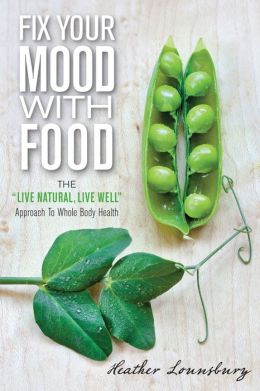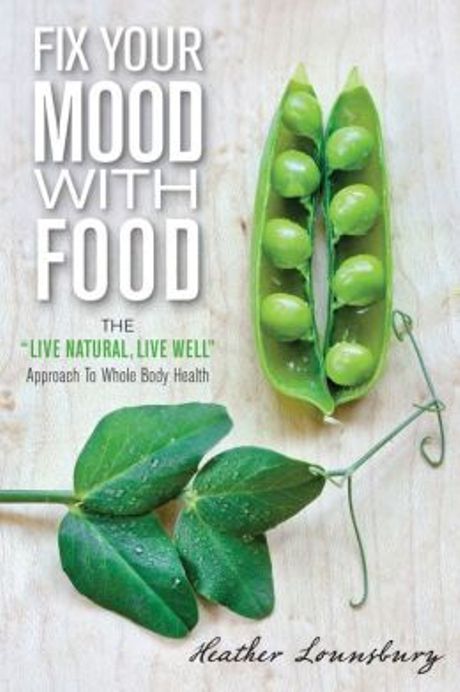What if every time we ate, we had “the opportunity to improve our quality of life”? According to Heather Lounsbury, author of Fix Your Mood With Food, we do!
Lounsbury, a Los Angeles–based acupuncturist, combines her extensive knowledge of Western nutrition, holistic health, and traditional Chinese medicine (TCM) to illustrate how the foods we consume can impact not only our physical health but also our emotional well-being. In TCM, the two are inextricably linked. Most of us know by now that the standard American diet, aptly abbreviated as “SAD,” can lead to a host of physical ailments, including diabetes, obesity, cancer, and heart disease. But what we eat also plays a far greater role than many of us realize in alleviating (or exacerbating) emotional states such as grief and anxiety.
In the first section of Fix Your Mood With Food, Lounsbury gives readers a brief crash course in TCM, introducing concepts such as yin and yang, qi (the body’s energy or life force), the five traditional Chinese elements (wood, fire, earth, metal, and water), and the importance of balance. She explains that TCM practitioners believe that there are five emotions that, when suppressed, can lead to physical illness. These are anger, heartache, sadness, fear, and worry, and each emotion is linked to a specific organ. (Note that in TCM, “organ” refers to a complex system of related emotions and physical symptoms, not to the actual body part. So if you’re dealing with unresolved anger or resentment, which is linked to the liver, it doesn’t mean that you’re necessarily suffering from liver failure and need to rush to the emergency room.)
Next, Lounsbury shows us how to put this information into action. For example, let’s say you’re suffering from anxiety. Many Americans are. In fact, Lounsbury says that in the last 10 years, the number of people taking anti-anxiety medications has shot up 30 percent. Anxiety, according to the author, is linked to the water element and can manifest as everything from insomnia and headaches to lower back pain. If you’re experiencing these symptoms, you’ll want to choose foods that support your kidneys’ qi, such as plums, celery, walnuts, black beans, oats, quinoa, and cabbage, and avoid stimulants such as soda and caffeine. For each of the five emotions listed above, Lounsbury includes case studies of real clients and details of their treatment plans (including acupuncture and herbal remedies) as well as sample menus.
She also provides some sound nutritional advice that we would all do well to heed, regardless of our specific symptoms, such as staying hydrated, reducing our sugar consumption (did you know that there are at least 50 different terms for sugar used on food labels?), minimizing processed foods, and choosing plant-based whole foods.
Holistic health pioneer Ann Wigmore once said, “The food you eat can be either the safest and most powerful form of medicine, or the slowest form of poison.” As more and more people reject the standard American diet and embrace vegan living, we are proving this sentiment to be true—and Lounsbury’s book will provide you with the tools you need to get started on the path.






